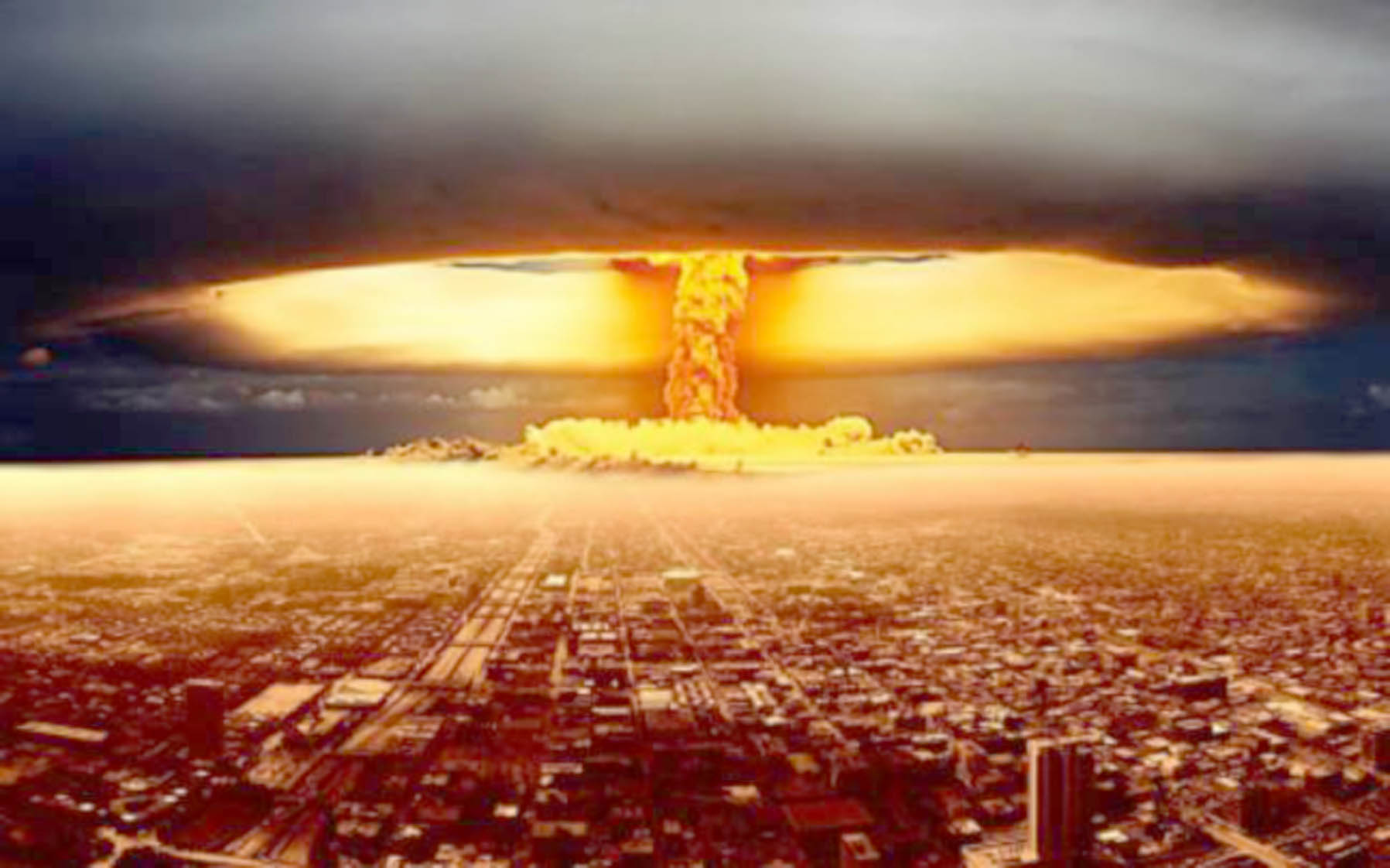By Yasir Hussain
The Western academic community agrees that, had India not detonated its nuclear devices, it would have been almost impossible for Pakistan to go nuclear.
This week, on May 28, 2018, Pakistan marked the 20th anniversary of its six nuclear tests — conducted in response to India’s five nuclear tests in 1998. Pakistan’s demonstration of detonating its indigenous nuclear weapons in the barren Chagai district was, indeed, a technological feat by all accounts. Since then, India and Pakistan annually observe May 28 as National Technology Day and Youm-e-Takbeer (Day of Greatness) respectively.
The overt nuclear tests by India and Pakistan significantly transformed the nature and dynamics of South Asia’s hostile security environment. It is pertinent to note that Pakistan’s pursuit of nuclear capability had never been an easy task. When India, in May 1974, introduced an ominous nuclear aspect in the South Asian theatre, Pakistan immediately brought a proposal before the UN to declare South Asia a nuclear weapon-free zone.
Pakistan was well aware of the risks associated with the nuclear arms race. In 1978, and again in 1979, Pakistan made two critically important proposals to India, signing a joint Indo-Pak declaration renouncing the acquisition and manufacture of nuclear weapons and simultaneous adherence to the Treaty of Nuclear Non-proliferation (NPT). Had India accepted any of these proposals, South Asia’s outlook would have been remarkably different today.
The onus of promoting the nuclear arms competition in South Asia rests on India as it, once again, refused to accept Pakistan’s proposal for mutual and equal restraint on the development of nuclear and ballistic missiles.
In fact, when Pakistan responded to the Indian nuclear tests, Indian parliament member Somnath Chatterjee condemned his country’s tests and directly addressed the then Indian prime minister, Atal Bihari Vajpayee, saying, “You have started a nuclear arms race in this region.”
It is quite evident that Pakistan’s development of nuclear weapons has strengthened its deterrence equation vis-a-vis mighty India, which enjoys conventional military superiority. Pakistan’s acquisition of a modest nuclear arsenal has restrained India from achieving its political and military aims.
For instance, the then Indian home minister, L K Advani, had advised Pakistan to give up its claim on Kashmir as the ‘geo-strategic’ axis, after India’s nuclear tests, had decisively tilted in India’s favour.
Vajpayee too after visiting the Indian nuclear test site had warned Pakistan saying, “it should adopt a more conciliatory attitude that recognises India’s newly enhanced military power.” The nascent nuclear capability motivated the Indian leadership to maintain an offensive position on critical issues including Kashmir.
Despite severe international pressure, particularly from the Clinton administration, Pakistan’s choice of going nuclear was inevitable. There was no international guarantee offered to Pakistan against the nuclear threat emanating from its arch-rival India. Although during the cold war the US had extended nuclear deterrence to its European allies against the nuclear threat of the Soviets, Pakistan had to rely on itself.
Ever since the overt nuclear tests, Pakistan has been developing an Indian-centric robust nuclear capability. Unlike India, Pakistan does not have any global ambitions for its nuclear programme. India’s acquisition of Intercontinental Ballistic Missiles (IBMs) and its overwhelming spending on Ballistic Missile Defence Systems (BMDs) has not only destabilised regional strategic parity, but has also created incentives for a costly arms race.
With its offensive military postures, unveiling military strategies such as the Cold Start military doctrine (now restyled as ‘proactive defence’ operations), India has compelled Pakistan to opt a policy of full-spectrum deterrence to avoid any kind of military adventurism from its arch-rival.
It is important to point out that Pakistan’s nuclear outlook is not just confined to its military-oriented nuclear programme; rather, its civilian programme has contributed immensely to the socio-economic development of the country. Therefore, Pakistan considers peaceful use of nuclear technology a socio-economic imperative.
Ever since Pakistan has tested its nuclear weapons, it has emerged as a responsible nuclear power. Despite a cold response from its neighbour, Pakistan has consistently supported regional arrangement aimed at reducing nuclear risks and restraining the nuclear arms race in the region. Pakistan’s proactive role in previous nuclear security summits and its continuous efforts to mitigate issues of nuclear proliferation have garnered widespread acclamation from the international community.
Pakistan has been consistently requesting to be formally admitted to the global nuclear cartel, including the Nuclear Suppliers Group (NSG). After 20 years of India and Pakistan’s nuclear tests, it has become the need of the hour to mainstream Pakistan in the global nuclear order.
India has already been given various exceptions in terms of the NSG-waiver and access to the global nuclear market through various nuclear deals. The responsibility now rests with the international community to address Pakistan’s case of nuclear mainstreaming.
It is an open secret that Pakistan was a reluctant entrant to the regional nuclear arms race, primarily initiated by India. Pakistan was forced to develop a credible nuclear weapons programme to ensure its national sovereignty from the Indian nuclear threat.
Therefore, unlike India, Pakistan’s pursuit of nuclear weapons is not driven by prestige. It was the security factor that motivated policymakers in Islamabad to develop an indigenous nuclear weapons programme that guarantees peace in a volatile environment.
The writer is a visiting fellow of the South Asia Program at the Stimson Center Email:
yhussain@stimson.org.


